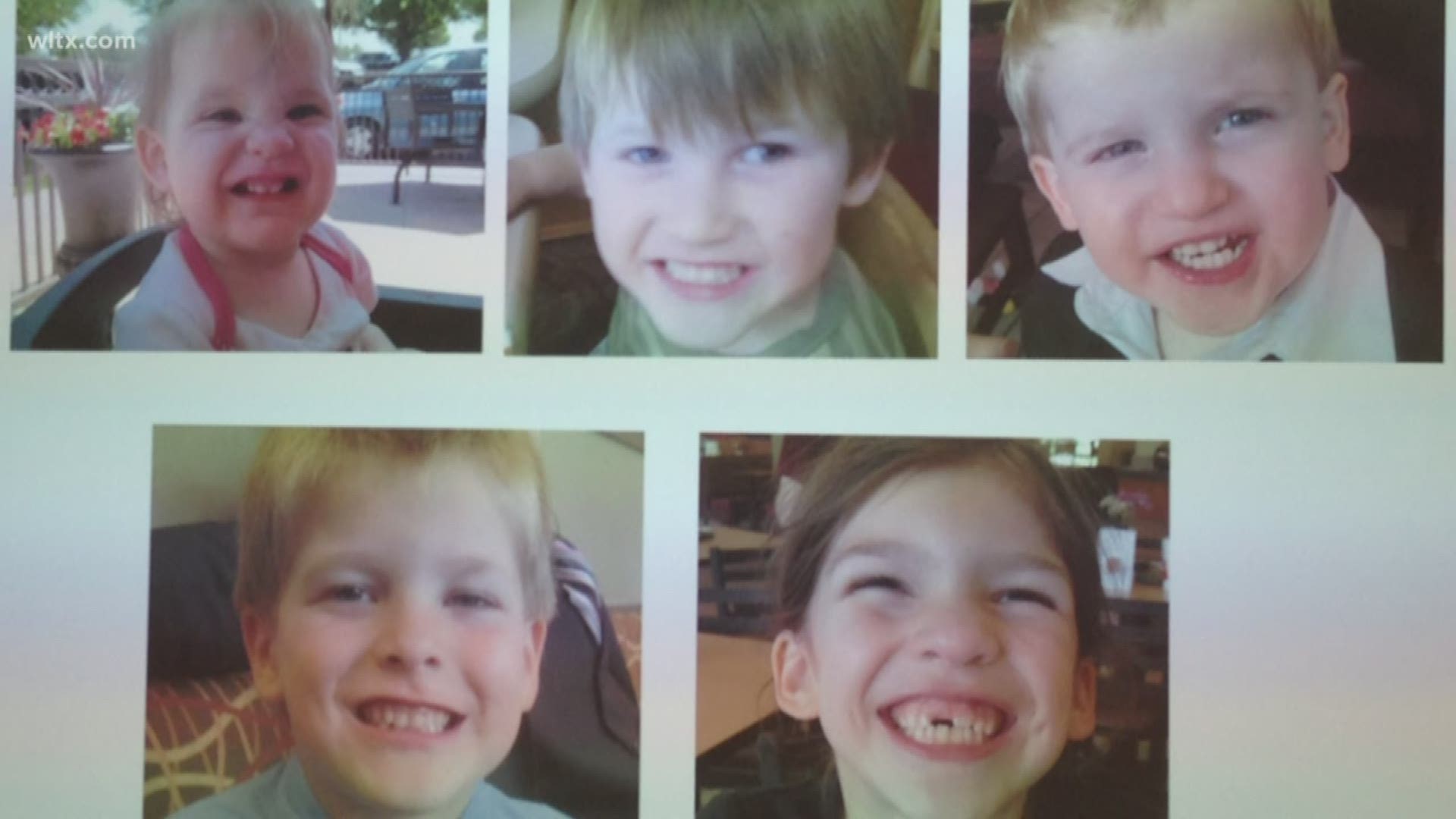COLUMBIA, S.C. — The South Carolina man who murdered his five children has filed an appeal of his conviction and sentence with the Supreme Court of South Carolina.
Timothy Jones Jr. and his attorneys submitted the paperwork Friday. The move was not unexpected, as it's typical in death penalty cases to file multiple appeals.
A Lexington County jury took just one hour and 45 minutes earlier this month to decide that Jones deserved the death penalty rather than life in prison. That came after an eight-day long sentencing phase of the trial, which itself following a three week-long murder trial.
Jones killed 8-year-old Merah Gracie, 7-year-old Elias, 6-year-old Nahtahn, 2-year-old Gabriel, and 1-year-old Abigail Elaine on August 28, 2014 at their Lexington County home. He then drove around with their bodies for days before disposing of the remains in a field in Alabama.
Over the course of five weeks in both the trial and sentencing phase, prosecutors laid out the case that Jones was a cold-blooded killer, who went and killed each of his children after causing his first son, Nahtahn, to die by forcing him to do physical exercises. Nahtahn had wanted to go back to his mother before the killings, and in a phone call played in court between Jones and his father, the killer tried to blame the little boy or causing him to snap.
Jones' lawyers argued their client was insane at the time of the killings, but in finding him guilty of murder, the jury rejected that premise. In the sentencing phase, the children's mother, Amber Kyzer, asked for mercy for Jones, even though she said she'd understand if the jury chose death. Several of his Jones' relatives, including his father and grandmother, begged the jury to spare his life.
Jones' final fate is now a little unclear. Technically, an execution date was scheduled for November of this year, but that won't happen, due to an automatic appeal required by law and others that could come down the line. In general, inmates spend years on death row before they're ultimately killed.
Another complicating factor is the lack of one of the drugs used to kill an inmate by lethal injection. Not having the drug forced the state to postpone the execution of Bobby Stone, who killed a Sumter County deputy in 1996.
South Carolina lawmakers introduced a new bill in early January to bring back electrocution and the firing squad. The bill states, "a person convicted of a capital crime and having imposed upon him the sentence of death shall suffer the penalty by electrocution or at the election of the person lethal injection if it is available at the time or by firing squad.
The bill passed the Senate but did not pass the House. They could pick up the idea next year.
South Carolina last executed an inmate in 2011.

